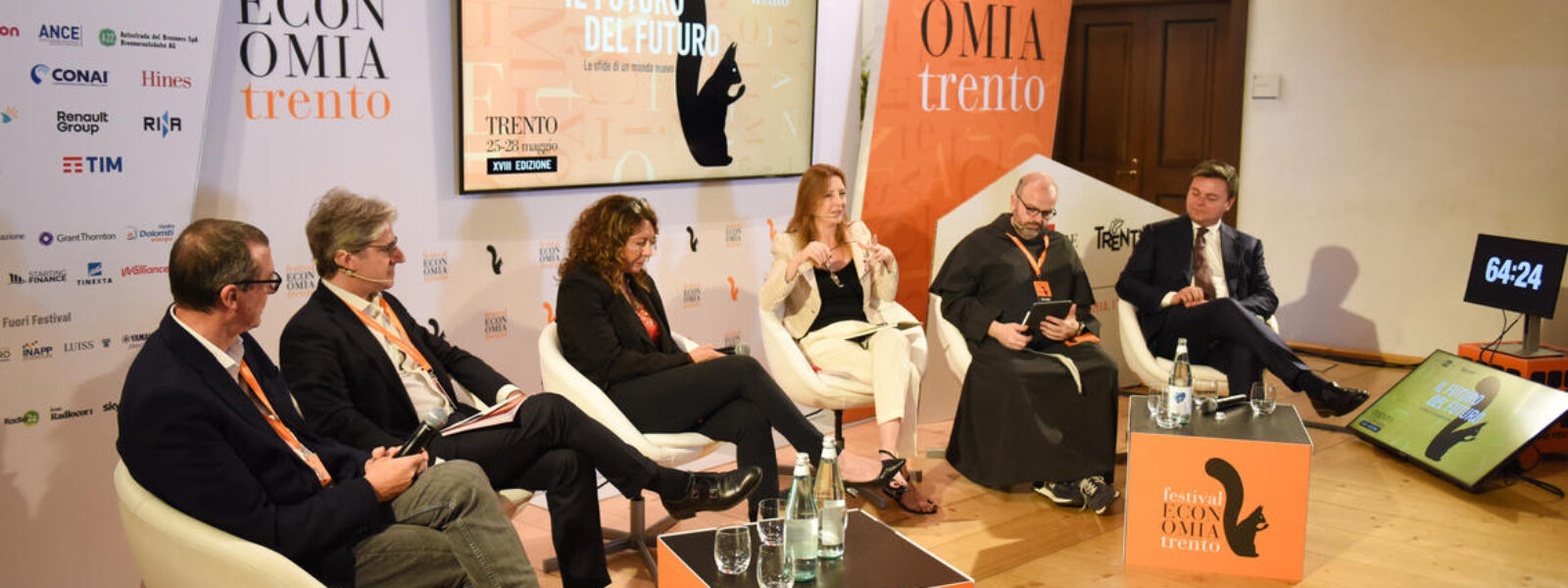“ChatGPT, when machines replace humans in processing thoughts”

Questa mattina a Palazzo Geremia la tavola rotonda organizzata nell’ambito del Festival dell’Economia di Trento
(v.l.) “They don’t reason like we do. ChatGPT is an intelligence of another kind and we need to understand how it is made in order to be able to use it at its best.” So said Paolo Traverso, director of Strategy and Development at Fondazione Bruno Kessler — a pioneer in artificial intelligence research in Italy — during his talk this morning at Palazzo Geremia as part of the Trento Festival of Economics , dedicated this year to the topic of future.
In the panel discussion “ChatGPT, when machines replace humans in the processing of thoughts” with Paolo Benanti (Pontifical Gregorian University), Marco Gay, (President of Confindustria Piemonte and Digital Magics SPA), Michela Milano (University of Bologna) and Luca Peyrano (Cedacri Group), Traverso explained the potential and limits of ChatGPT and the directions that research is taking: “The system is based on the probability that after a word comes another word, after a sentence another sentence and so on. And it is trained on the millions, billions of documents that are provided to it. It consequently has limitations, which are mainly reliability, inclusiveness, bias, and sustainability. For the latter point, suffice it to say that its younger sibling, GPT3, used the same amount of energy in one year for training as the average 1,284 households consume per year. Research is working hard, going in the direction of overcoming these limits. The technology underneath can be used to make simpler models, with constraints to make it more reliable. At FBK for example, we are applying it in a European project to detect unfair terms in contracts, with a model that is proving very efficient. In general, in Europe, if we can make artificial intelligence that respects rules, including social rules, working in a multidisciplinary way, we will be able to play a very different game from the one being played between China and the United States.”
The panel discussion, introduced by a conversation between Francesco Profumo, president of Compagnia San Paolo, and Gerardo Graziola, a journalist with Sole 24 Ore Radiocor, was moderated by Rai 1 journalist and anchor Barbara Carfagna.
Photo by PAT Press Office